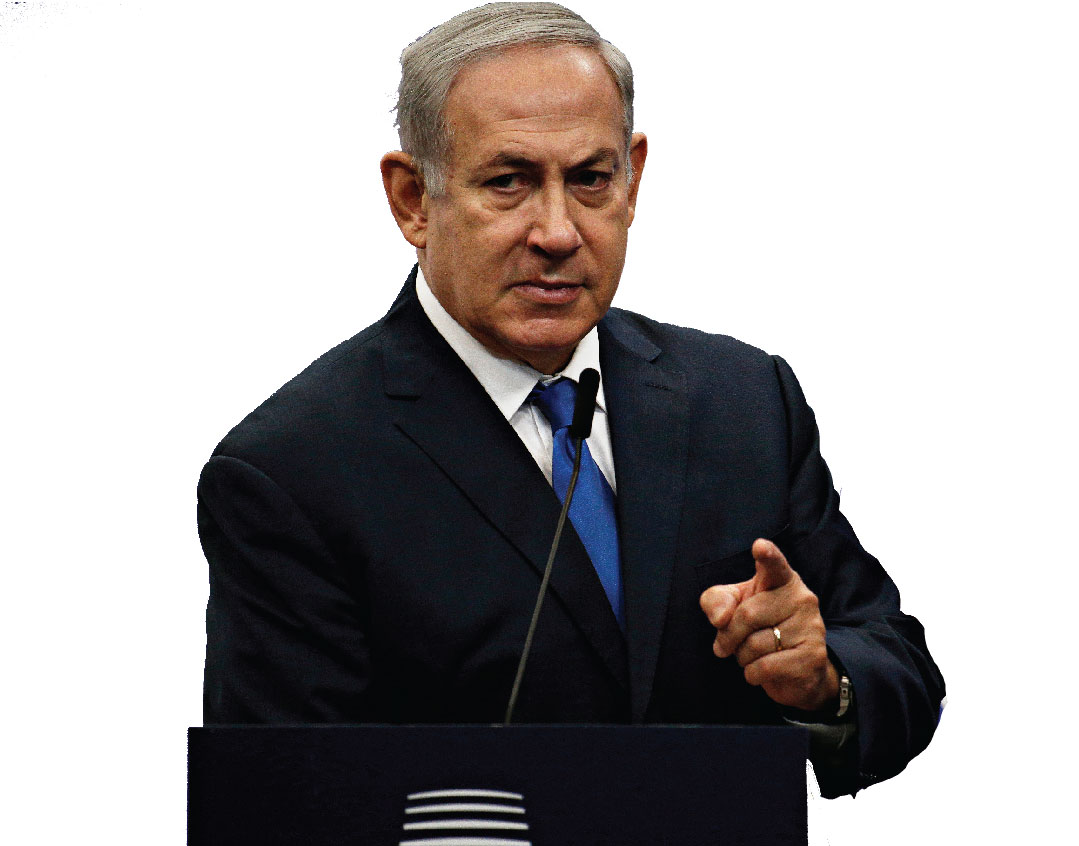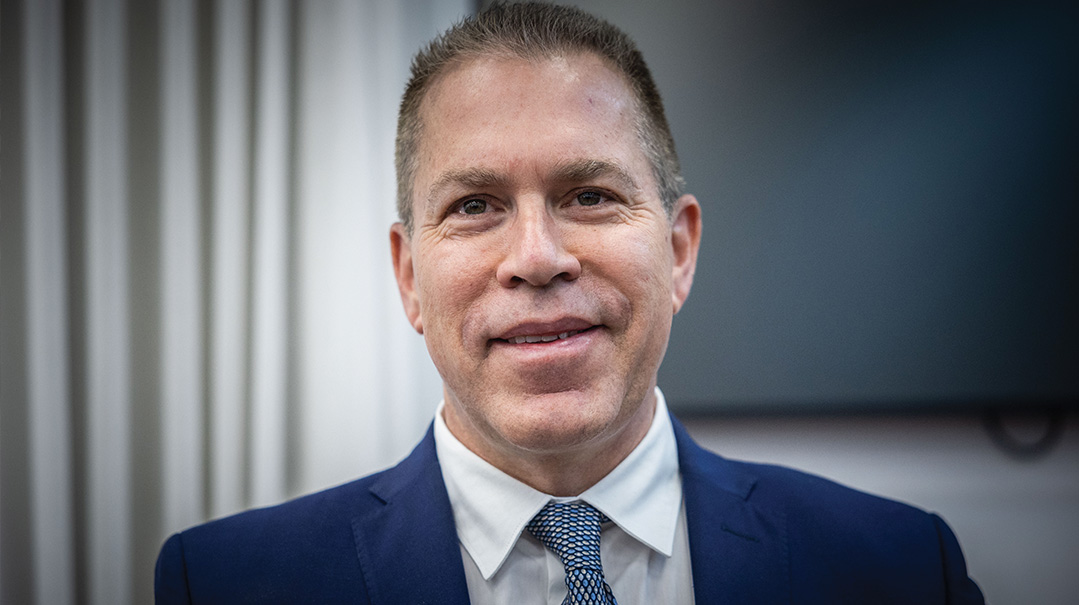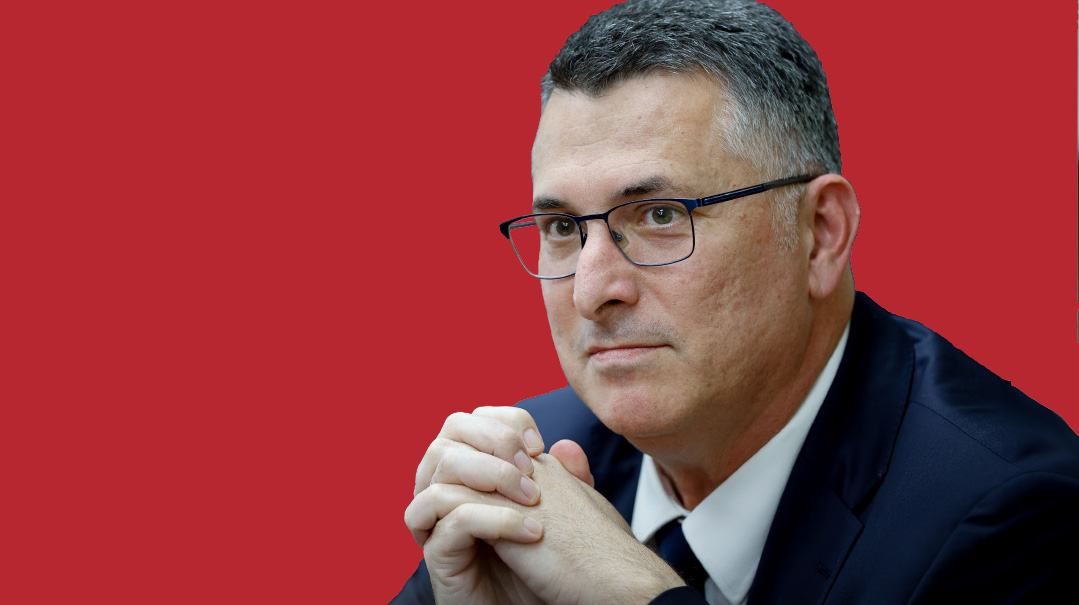A Few Minutes with Dr. Gayil Talshir

Has Binyamin Netanyahu pulled the last rabbit out of his hat, or is he on the verge of staging his greatest escape yet? Dr. Gayil Talshir, head of the President’s Program for Academic Leadership at Hebrew University’s department of political science, crunches the odds

Attorney General Avichai Mandelblit postponed the hearing, at which Netanyahu will try to convince Mandelblit not to indict him, from July to October. Does the September election grant him additional time, or does Mandelblit dig in his heels?
Mandelblit made it very clear a few weeks ago that the judicial process will continue unrelated to the political process. I can almost guarantee the hearing will be October 2 and will not be postponed again. If Netanyahu can’t get Mandelblit to change his mind, the next question becomes, when will Mandelblit put forward the indictment? Probably in late November or December, which means Netanyahu’s hearing will be held as the next coalition is being formed and the actual indictment, if forthcoming, will be filed shortly after the new government is established.
Avigdor Lieberman’s refusal to budge an inch on the draft law even after the chareidi parties compromised sank any chances to form a coalition. Is there anything more Netanyahu could have done?
Netanyahu did not come across as a good negotiator because he didn’t have any other options. Normally, he could have negotiated with the Blue and White party [Benny Gantz] to lower the demands of other coalition partners, but he was unable to because Blue and White’s whole campaign was against Netanyahu. Another thing, which was not mentioned at all in the media, is that Netanyahu wanted a bad deal for the Likud. He wanted to succumb to the very absurd demands of the other parties because he didn’t want to give high-profile ministries to the Likud’s top five, whom he sees as rivals.
Do those rivals gain or lose strength in this upcoming campaign?
This is a very central question. We saw the support that Gideon Saar got just a few weeks ago when he said passing the new law to give Knesset members automatic immunity from prosecution would be suicidal for the Likud party. Then we saw Netanyahu’s very fierce reaction to Saar, but the world has changed since then. Up until now, anyone raising a voice of dissent against Netanyahu would have immediately been declared a leftist, a traitor, or an outcast. Things have changed now because it’s clear that Netanyahu, the political magician, failed miserably. This failure is going to have an effect on the right wing, and we will begin to see Likud backbenchers who might start questioning the party’s unanimous support for Netanyahu.
So you see a process by which Netanyahu’s natural allies begin to desert ship?
Over the next three months, I think we are going to see some more fractures in this equation.
I don’t think we’re going to see people saying we’re leaving the Likud, but the other weak spot for Netanyahu is the national-religious camp, which is very dominant around Netanyahu and in the Likud. The argument until today was that if you want more settlement activity, we have to stay with Netanyahu. You can already hear dissenting voices that say we prefer a right-wing government without Netanyahu, or any other national unity option, to political paralysis. We might begin to hear many more voices in the Likud that we can’t go on like this because Netanyahu is actually hurting the right-wing government rather than helping it.
What’s Netanyahu’s strategy to shore up his support?
There are two interesting processes going on. First, Netanyahu will try to destroy every right-wing party who is not Orthodox [in Jewish practice]. We will hear him saying we must run as one big party of the right. Netanyahu will try to annex all of the small right-wing parties that ran separately last time, as he already did with Kahlon. Blue and White will try to mirror that, and I think we’re going to see negotiations between them and Labor to try to form a united front against Netanyahu.
What made Avigdor Lieberman tick during this election?
There is a very big enigma as to why Lieberman played his hand the way he did. I think he had both ideological and personal reasons. Ideologically, Lieberman was adamant that the Likud succumbed to the ultra-Orthodox camp and was leading Israel toward a halachic state. Lieberman didn’t just want to enhance his party’s power with voters from the former Soviet Union — he wanted all right-wing secular voters to vote for him as leader of a principled party. His key issue was to try to force the chareidi community to accept what the IDF put forward for the new enlistment law. Even when Shas and Degel HaTorah agreed to the very degrading conditions of Lieberman, Lieberman was not willing to go the last step toward them. Then it became a personal thing. When Netanyahu began his fierce attacks against Lieberman in the Russian media in Israel, Lieberman decided he’s not going to fold.
Will Lieberman get to play spoiler again, or have we witnessed his political self-destruction?
We already see over the last few days that Netanyahu is trying to crush Lieberman. He has already dubbed him as part of the left, so Lieberman may lose from all this. Another scenario is that Lieberman will say, okay, if Netanyahu doesn’t want me then all my options are on the table.
Just before press time, Netanyahu sacked Naftali Bennett and Ayelet Shaked from his cabinet, despite reports that saw the two of them being incorporated into the Likud. What’s their next step, and will Bibi use his killer instinct against Shaked and Bennett as he will with Lieberman?
Pending negotiations between Shaked and Bennett, their New Right party may try to form a technical bloc with Moshe Feiglin’s Zehut Party and possibly Jewish Home to ensure they pass the electoral threshold this time. Netanyahu will still try to annihilate Lieberman’s party, hoping to form a right-wing coalition with the chareidim and the national-religious as three independent segments of the right. Netanyahu will probably go softer on Bennett and Shaked, as he needs them to pass the threshold and try to crash Lieberman.
What kind of government might we see on the morning of September 18, 2019?
The big picture now is whether it’s going to be a conglomeration of the center-left parties against all the right-wing parties supporting Netanyahu. If we are headed toward a situation where two big parties will try to annex all the other smaller parties and run as two big catch-all parties, this would be good for Israeli party politics. Since the late 1990s, the system has deteriorated into small parties who all play identity politics. The other question is what happens with voters who are right wing in terms of politics, but don’t want to see an indicted prime minister ruling. My guess is turnout on September 17 is actually going to be lower because those who are against Netanyahu serving as a prime minister pending indictment are not going to vote.
(Originally featured in Mishpacha, Issue 763)
Oops! We could not locate your form.












